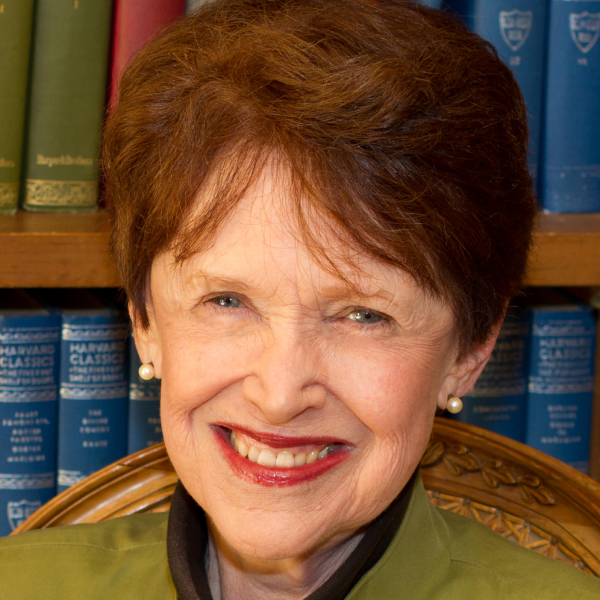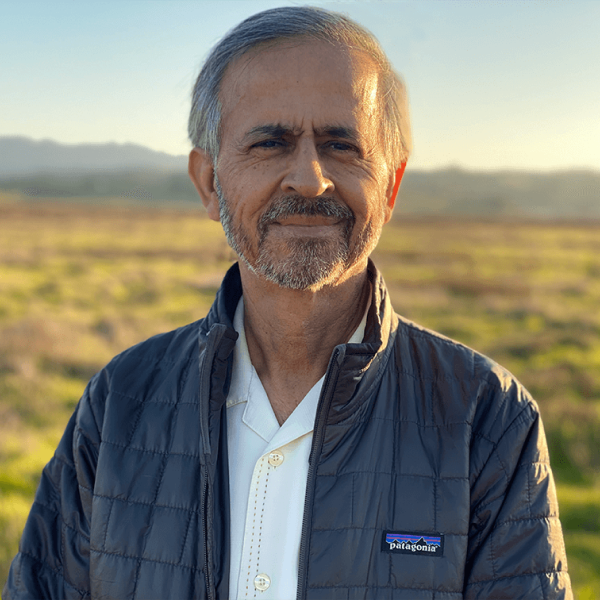A Seven-Week Online Course
On our long human journey, our ancestors invented both systems of partnership and systems of domination. Domination systems have had disastrous consequences, while partnership systems have enabled human flourishing. This course explores how the potentials of partnership systems can be harvested by developing partnership capability as applicable to all system levels, from intimate - starting in families - to societal and economic, including specific principles and practices that guide the process of transforming adversaries and bystanders into partners and allies.
Partnership capabilities enable members of a system to collaborate in generating synergistic outcomes. Five dimensions of partnership consciousness will receive particular emphasis: relationality, pleasure, prosperity, creativity, and spirituality.
Course Faculty

Riane Eisler
Riane Eisler, JD, PhD (hon), is internationally known as a systems scientist, cultural historian, futurist, and attorney. She is president of the Center for Partnership Systems (CPS) and Editor-in-Chief of the Interdisciplinary Journal of Partnership Studies at the University of Minnesota. Dr. Eisler pioneered the expansion of human rights theory and action to include women and children, and her research, writing, and speaking has transformed the lives of people worldwide. She keynotes conferences internationally and consults for governments on Partnerism and the Partnership model. She is the author of numerous books, including Nurturing Our Humanity: How Domination and Partnership Shape Our Brains, Lives and Future (Oxford University Press, 2019) and The Chalice and The Blade: Our History, Our Future (now in its 57th US printing, and in 27 foreign language editions). Her The Real Wealth of Nations: Creating a Caring Economics was hailed by Nobel Peace Laureate Archbishop Desmond Tutu as "a template for the better world we have been so urgently seeking" and inspired the development of CPS’s Social Wealth Index, showing the economic return from investing in caring for people, starting at birth, and caring for our natural life-support systems. For more information see www.centerforpartnership.org, www.partnerism.org, & www.rianeeisler.com

Aftab Omer
Aftab Omer, PhD is the president of Meridian University which offers degree and professional programs globally, emphasizing the power of transformative learning.
He is a sociologist, psychologist, developmentalist, and futurist. Raised in Pakistan, India, Hawaii, and Turkey, he was educated at the universities of M.I.T, Harvard and Brandeis. His publications have addressed the topics of transformative learning, dialogic capability, developmental power, cultural leadership, civil society, generative entrepreneurship, and the power of imagination.
Aftab’s advising work focuses on team development and on leveraging the creative potentials of conflict, diversity, and complexity. Formerly the president of the Council for Humanistic and Transpersonal Psychologies, he is a Fellow of the International Futures Forum and the World Academy of Arts and Sciences.
Course Modules
Week One
Care, Consciousness, and Partnership Capability
- Partnership-Domination Social Scale
- Five Dimensions of Partnership Consciousness
Week Two
Relationality: The Foundations of Care
- Families, Gender, and Intimacy
- Reimagining Feminine and Masculine
- Habits of Mutuality, Interdependence, and Reciprocity
- Moral Codes of Fairness and Mutual Accountability
Week Three
Pleasure: Affirming Aliveness and Connection
- Belonging and Well-Being
- Play, Learning, and Joy
- Beauty and Connection to Nature
- Sacralizing Sexuality
Week Four
Prosperity: An Economics of Caring
- Measuring the Truly Valuable
- Transforming Policies, Practices, and Professions
- Productivity and Artificial Scarcity
Week Five
Creativity: Art and Craft in the Service of Human Flourishing
- Re-emergence of Cultural Synergy
- Art and the Regeneration of the Commons
- Imagination and Cultural Leadership
Week Six
Spirituality: Regenerative Sources of Culture
- Purpose and Meaning at Work
- Ritualizations of Connection and Caring
Week Seven
Another World is Possible
- The Presence of the Future
- Whole Systems and World-Making
Online Course Format
Course Structure
- Seven-week online course through October 31, 2021
- Six live 75-minute Zoom sessions with faculty held Tuesdays at 9:00 am PT (Pacific Time) and recorded for participants who cannot join every session live
- Resources, networking, and emergent community outcomes
- Content and collaboration via Meridian's social learning platform
Course Schedule
- Course begins asynchronously via the Pivot collaboration platform, participants begin engaging with course resources and activities
- September 21 at 9 am PT - First live course session
- September 28 at 9 am PT - Second live course session
- October 5 at 9 am PT - Third live course session
- October 12 at 9 am PT - Fourth live course session
- October 19 at 9 am PT - Fifth live course session
- October 26 at 9 am PT - Sixth live course session
- October 31 - Course ends, participants continue engagement via learning platform’s social group
Course Fees
$250, including the synchronous course video calls (with recordings), online learning platform access, participation in the course learning community, plus course resources and written activities.
Accreditation
Meridian University is accredited by the Western Association of Schools and Colleges (WASC) - a higher education accreditor recognized by the United States Department of Education. WASC is also the accreditor for Stanford University, UCLA, and the University of California at Berkeley.
Frequently Asked Questions
Meridian’s online courses are conducted via the University's own learning platform.
Our online courses promote community learning, through strong interactive engagement with fellow students and faculty as well as live video sessions with faculty.
You will need an email account, a high-speed internet connection, and access to a computer, iOS or Android device.
If you are planning to attend the course video calls live, you will need a webcam and microphone for your device. (Course video calls are conducted with participants video-enabled.)
Live 75-min video sessions with faculty and fellow students will be conducted throughout the course. Each week's live video call will be recorded and posted on the course platform.
Video presentations, readings, discussions and learning activities will be accessible asynchronously and may be completed on participants' own schedule. Course resources and recordings will remain available up to 30 days after the close of the course.
Full refunds are available until two (2) days before the course begins, by request via email.
You do not need to apply to a Meridian graduate degree program to take this online course. This course is one of Meridian’s open-enrollment courses
The course support team will be available to assist from start to finish. Please send your questions/requests/issues to openenrollment@meridianuniversity.edu
Convening faculty generally lead each live session. Contributing faculty typically contribute in one of the live course sessions. Course resources address the work of both convening and contributing faculty.
Meridian has institutional and federal financial aid options for our graduate degree programs. This open enrollment course does not have financial aid or payment plans available.